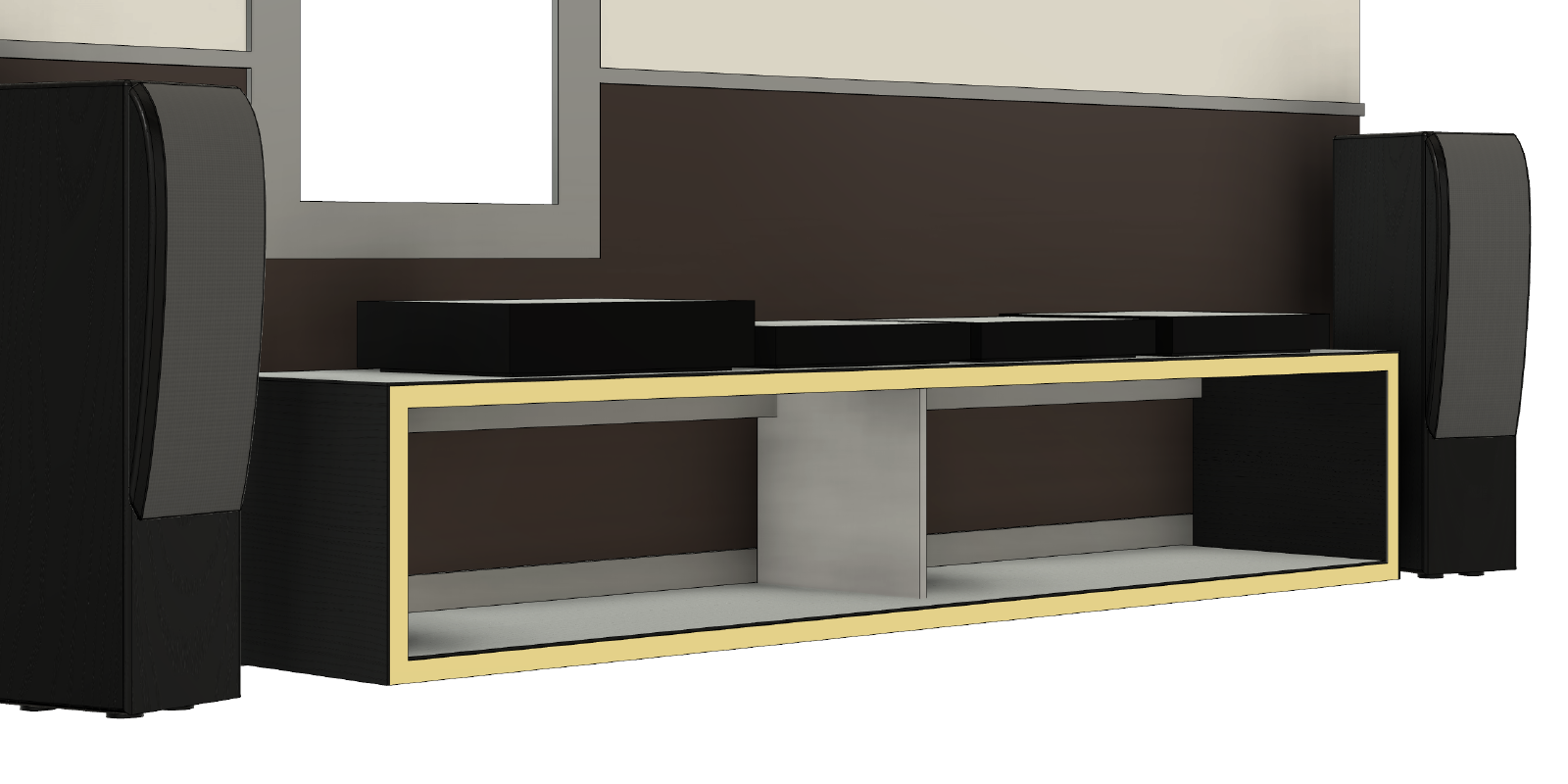An Audio-Adaptive Stereo Console
I didn’t start out intending for this to be such a big project. It started out with an attempt to make a piece of furniture for our HiFi and ended up with a bunch of hardware and software design …
We bought a record player and started collecting vinyl during the pandemic. We weren’t able to find a well suited piece of furniture, so i set about making a console out of some scrap boards we had left over from another project. I didn’t take any construction photos because I didn’t expect it to work.
Here’s a mockup I made in Fusion 360.

The basic construction would involve making each of the four sides out of a sandwich of
Because I had a detailed CAD model, I could precisely measure and cut each board. I then designed small 3d printed corners that would allow me to hold the three boards in the exact positions they’d need to fit together later.

I was able to slather all three boards in glue, slide them into the 3d-printed corners, and clamp and nail everything in place. The left and right side boards were pre-drilled to accept Kreg pocket hole screws that would hold them to the top and bottom.
The left and right sides were mirror images of each other, but the top and bottom were quite different as the top surface of each was the one that had the finished hardboard layer.
I also cut a piece of particleboard for the middle divider and also a long strip to go along the back to stop the whole thing from turning into a parallelogram (my years of assembling IKEA furniture have taught me a thing or two). These parts would also be held in place with pocket hole screws.
Once the glue was set on the large pieces, it was time to assemble them. Each of the four corners was generously glued, and the pieces were slotted together. I used ratcheting tie-downs to hold the large shape, and once it was mostly square, I screwed in the pocket hole screws. I had to install the middle divider at this point to stop the whole thing from bowing inward. The back support was the last piece to be put in place.
The final touch was adding thin strips of hardboard to the front. The edges had a small lip in place for this so it would fit exactly flush.
I used wood filler to fill all the pocket holes and to clean up any cracks. I then sanded all the surfaces, and it was primed and painted. Two coats of left-over latex house paint, with a 320 grit sand in between gave a pretty nice finish. I coated the whole thing in matte polyurethane and then used a little gloss poly on the yellow accent.
I made designed five squat round feet to mimic those on the stereo components. These were printed in black PETG and screwed to the bottom.
As a final touch, I ran a LIFX light strip along the back and the underside.

